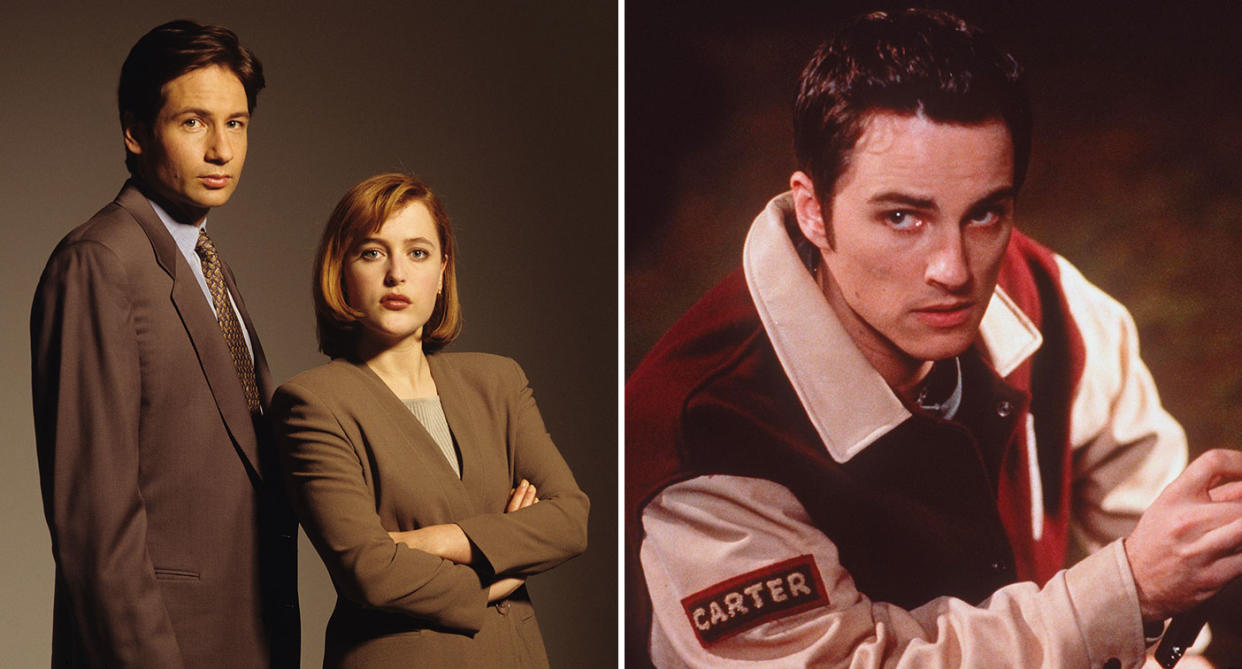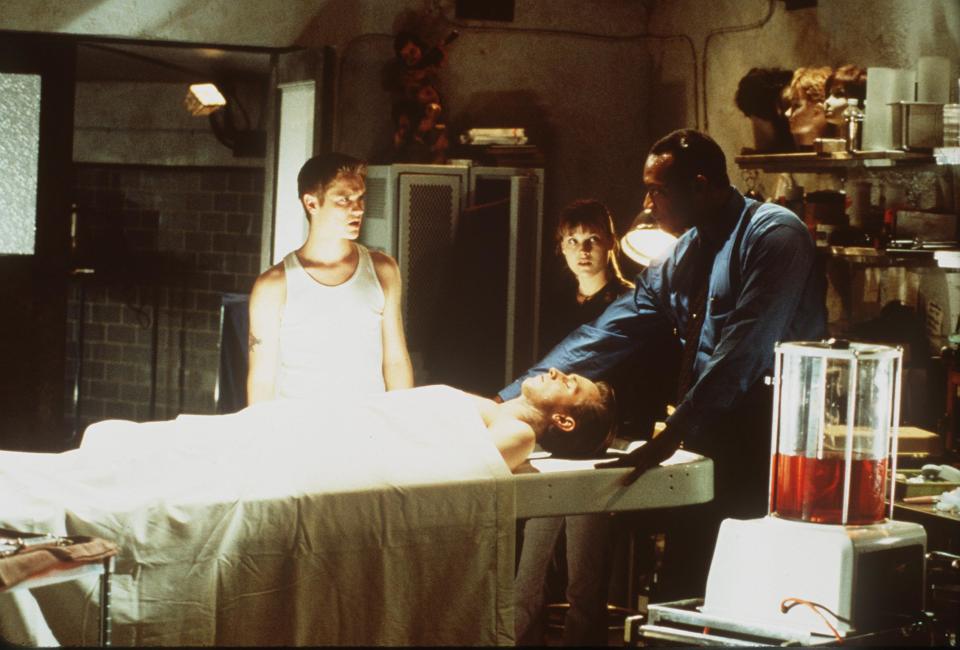How 'The X-Files' helped spark the 'Final Destination' franchise

Before Marvel proved that you can release a film at any time of the year and still have a hit movie, March wasn’t really regarded as a commercially strong time to unleash a big film.
As a consequence, New Line Cinema had a little bit of space when it set its new supernatural horror Final Destination for release in the US on 17 March, 2000. The only studio competition was a film by the name of Erin Brockovich (you might just have heard of it) but other than that, the coast was relatively clear.
The resultant $112.9m box office gross – over $50m from its US release along – for Final Destination proved hugely profitable, and ignited a horror franchise that even to this day is still going, with a fresh film planned.
Origins
What’s surprising about the story, though, is just where the film came from. In its original form, Final Destination wasn’t even supposed to be a cinema release. In fact, the core idea was originally intended to be an episode of The X-Files television series, a show whose influence would run right through the eventual feature.

The idea came from a writer by the name of Jeffrey Reddick, and his story for a while was pretty infamous. That as a 14-year old, he came up with a plot for a new A Nightmare On Elm Street film. He’d had an idea for a prequel, and penned a ten-page treatment document. Not only that, he sent it off to New Line Cinema, who – in line with its policy – sent it back to the young writer without reading a word of it.
Read more: First details of Final Destination reboot
Reddick’s persistence won through, though. Undeterred, he went straight to the top, by seeking out the-then head of New Line – and its co-founder – Robert Shaye. He contacted Shaye directly and asked him to read the piece, and this time, he got through the door. Shaye took a look, replied to Reddick, and the pair kept in touch from that point onwards. It would lead to an internship for Reddick at the studio during his college years, and ultimately, a job at the end of his studies.

Separately, The X-Files was becoming a TV sensation. Following its debut in 1993, it was quickly building to become one of the small screen hits of the decade. Reddick was a fan of the show, and he wanted in.
Thus, in 1994 he penned a draft of a teleplay by the name of ‘Flight 180’. As he would explain to the website Bloody Disgusting, he typed it all out on Microsoft Word as he didn’t have proper screenwriting software, and saved it to floppy disk. He told the site that “I decided to use the basic concept of people cheating Death as the catalyst”. He then wrapped this around The X-Files, giving the character of Scully’s brother in the show a premonition.
Evolution

He didn’t send it off, but gradually considered turning the script into a standalone story. Crucially, what he’d written did actually make it to The X-Files team who helped him shape it into a feature film.
By 1997, he’d penned what would be the first draft of the first Final Destination film. Furthermore, he had a path to getting it read: he was able to sell it to his then employers, New Line, with another X-Files fan – Craig Perry – ultimately signing up to be one of the film’s producers.
But the links to the show weren’t done.
Read more: Cast Away at 20
New Line, when seeking a director for the film – which it was allocating around $23m to make – also turned to the hit series. Glenn Morgan was a co-executive producer on the show, and had co-penned several of its early episodes (including the hugely acclaimed ‘Tooms’). His writing partner, James Wong, was a writer-producer on the show too, and he and Morgan had been pivotal in its early success. They were amongst the small core of people – including its creator, Chris Carter – credited with shaping the show’s foundations.
Out there

When they got the Final Destination script – amongst the names that New Line had sent it too – both Morgan and Wong were interested in it. That said, they were both keen to put their own stamp on the material. They re-wrote the screenplay, intrigued by the idea of a film of this ilk without an obvious killer. It was their work that lured in the aforementioned Perry, and then there was the small matter of who was going to direct the film.

Wong had directed a single episode of The X-Files TV show to this point (‘Musings Of A Cigarette Smoking Man’), but would make the jump to features with Final Destination (and indeed would return for the third film in the series too). And there it was: a project that had been conceived as a television episode was now making the jump to the big screen.
Read more: Inside Fox’s gamble on X-Men
A very successful jump too. Wong’s handling of suspense and tension – not least in the film’s infamous flight crash sequence – was backed by a promotional campaign where audience reactions were filmed and put out as a trailer (before that practice become more common). Furthermore, even though critics were hardly falling over themselves to praise the film, the movie was a hit with its audience, to the point where a sixth movie in the series is now in active development, two decades after the first.
Aftershocks

Once they’d completed the feature, Wong and Morgan would return to The X-Files, and he was amongst the writers and in fact both were amongst the writers and directors of the recent revival series, that came to a close in 2018.
As for Reddick? His story of persistence paid off, and in fact he’s now in post-production on his own feature directorial debut, Don’t Look Back. As you might expect, it’s billed already as ‘from the creator of Final Destination’.
It’s a horror thriller, involving a story of what happens when passers-by don’t intervene when they see an assault, leaving a man dead. Said passers-by then find themselves targeted by someone mysterious, out for revenge.
And that, in itself, might have been the foundation for a pretty decent X-Files episode too…

 Yahoo Movies
Yahoo Movies 
